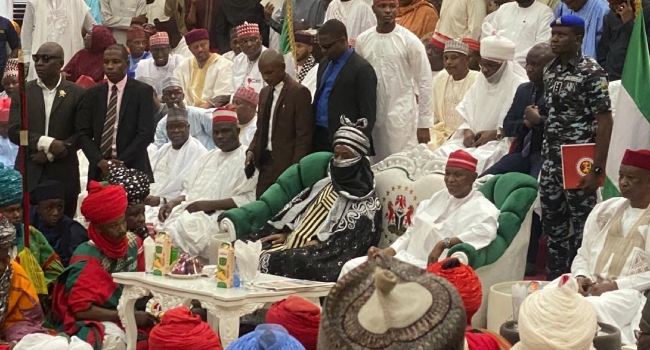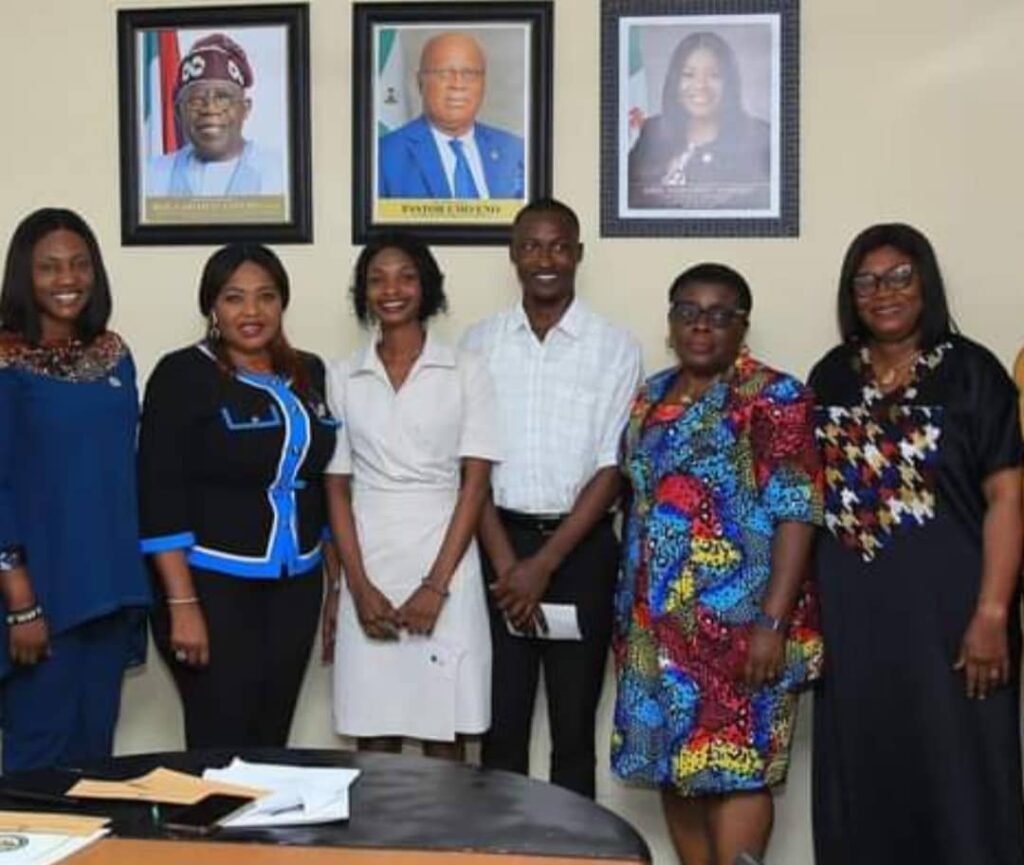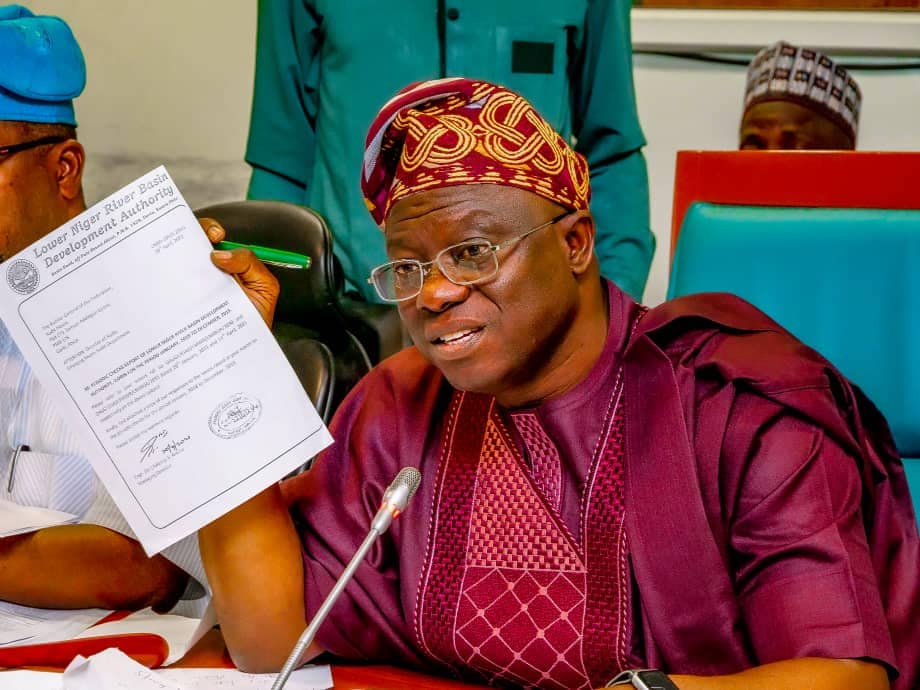President Mohammadu Buhari today admitted that there was still much to be done by his government to meet the economic target of lifting 100 million Nigerians out of poverty in 10 years notwithstanding the outbreak of the COVID-19 pandemic.
In his speech on the occasion of the commemoration of the country’s Democracy Day, Buhari said “there is still much more to be done”, saying his administration was doing its best in the face of scarce resources and galloping population growth rate that consistently outstrips capacity to provide jobs for the populace.
“I join you all today to commemorate and celebrate our Democracy Day. It is a celebration of freedom and a victory for one people, one country and one Nigeria.
“As with all democracies, we will always be going through improvement processes in our desire to reach the goal of a mature democracy, a strong, evolved and integrated nation-state to be reckoned with globally.
“In the last two years, we have witnessed and overcome a good number of testy challenges that would have destroyed other nations especially relating to our collective security.
“The indefatigable CAN DO Spirit of the Nigerian has sustained us and would keep pushing us to put these challenges behind us.
“Unfortunately, some of these challenges came in the shape of violent outrages leading to the loss of lives of many of our dear compatriots and the destruction of some of our infrastructure, including those devoted to improving our democratic processes.
“Once again, I want to render my sincere and heartfelt condolences to the families and friends of our gallant servicemen and women who lost their lives in the line of duty and as a sacrifice to keep Nigeria safe.
“I extend the same condolence to the families and friends of our countrymen, women and children who were unfortunate victims of such senseless arsons, kidnappings and murders.
“I also share the pains of families and direct victims of ransom-seeking, kidnapped victims who went through unimaginable trauma in the course of their forced imprisonment.
“Let me assure my fellow citizens that every incident, however minor gives me great worry and concern and I immediately order security agencies to swiftly but safely rescue victims and bring perpetrators to justice.”
Continuing, President Buhari reminded Nigerians that when he was elected as President in 2015, they did so because of their belief that he would put an end to the growing insecurity, especially the insurgency in the North East. He, however, regretted that the unintended consequences of our scattering them in the North East pushed them further in-country which is what we are now facing and dealing with.
Nevertheless, Mr. President reassured Nigerians that, “we will, by the Grace of God put an end to these challenges too.”
He added: “Unfortunately, like in most conflict situations, some Nigerian criminals are taking undue advantage of a difficult situation and profiteering therefrom with the misguided belief that adherence to the democratic norms handicaps this administration from frontally and decisively tackling them.
“We are already addressing these obstacles and we will soon bring some of these culprits to justice.
“We are, at the same time addressing the twin underlying drivers of insecurity namely poverty and youth unemployment.”
The President noted that the interventions led by the government and the Central Bank of Nigeria (CBN) in the past six years were targeted at improving agricultural services, infrastructure, power and health care sectors of the economy.
He explained that the Anchor Borrowers Programme of his administration has resulted in a sharp decline in the nation’s major food import bill from $2.23billion in 2014 to US$0.59billion by the end of 2018, adding that the rice import bill alone dropped from $1 billion to $18.5 million annually.
“This initiative supported local production of rice, maize, cotton and cassava. Government financed 2.5 million small-holder farmers cultivating about 3.2 million hectares of farmland all over the country and created 10 million direct and indirect jobs.
“Several other initiatives, namely Agribusiness/Small and Medium Enterprise Investment Scheme, the Non-oil Export stimulation Facility, the Targeted Credit Facilities operated across the 774 Local Governments.
“In the manufacturing sector, the CBN-BOI N200 billion facility financed the establishment and operations of 60 new industrial hubs across the country, creating an estimated 890,000 direct and indirect jobs.
“The CBN’s N50 billion Textile Sector intervention Facility increased capacity utilisation of ginneries from 30 per cent to nearly 90 per cent.
“The Economic Sustainability Plan – our rebound plan for the COVID-19 pandemic developed in 2020 is currently being executed. The plan is primarily focused on the non-oil sector, which has recorded phenomenal growth contributing over 90 per cent to the GDP growth in Q1 2021.
“Though marginal, we have recorded GDP growth over two quarters; Q2 2020 and Q1 2021. This is evidence of successful execution of the ESP by the Federal Government,” the President said.
He noted that his vision of pulling 100 million poor Nigerians out of poverty in 10 years has been put into action, explaining that it could be seen in the National Social Investment Programme, which is benefitting over 32.6 million Nigerians.
“We now have a National Social register of poor and vulnerable households, identified across 708 local government areas, 8,723 wards and 86,610 communities in the 36 States and the FCT.
“Our conditional cash transfer programme has benefited over 1.6 million poor and vulnerable households comprising more than eight million individuals. This provides a monthly stipend of N10,000 per household.
“I have also recently approved the National Poverty Reduction with Growth Strategy Plan that augments existing plans to further reduce poverty in Nigeria.
“As at the end of 2020, the Development Bank of Nigeria had disbursed 324 billion Naira in loans to more than 136,000 MSMEs, through 40 participating Financial Institutions. I am to note that 57 per cent of these beneficiaries are women while 27 per cent are youth.
“We are able to do all these and still accelerate our infrastructure development through sensible and transparent borrowing, improved capital inflow, improving and increasing revenue through capturing more tax bases and prudent management of investment proceeds in the Sovereign Wealth Fund,” Buhari explained.
He noted that the nation’s infrastructure revolution has been vigorously pursued with key projects attaining critical milestones under the Presidential Infrastructure Development Fund like the Second Niger Bridge, the Lagos-Ibadan Expressway and the Abuja-Kaduna-Zaria-Kano Expressway recording appreciable progress.
He added: “I have also approved the establishment of Infraco Plc, a world-class infrastructure development vehicle wholly focused on Nigeria with a capital structure of N15 trillion.
“The rail system is not left out as the Itakpe-Warri standard gauge rail was completed and commissioned 33 years after construction began. The Lagos-Ibadan double-track railway line, which I have just commissioned, has commenced operations.
“We are focused on ensuring that our infrastructure drive is key to economic growth and one that can be felt by every Nigerian. Building critical infrastructure in our ports is also opening up opportunities for the Nigerian economy.
“My approval for four new seaports using a Public-Private-Partnership approach is hinged on growing the Nigerian economy. These four seaports – Lekki Deep Sea Port, Bonny Deep Sea Port, Ibom Deep Sea Port and Warri Deep Seaport – will create massive job opportunities and foreign investment inflows.
“We have worked at deepening our Eastern ports leading to success like having three container ships berth at Calabar port, a first in 11 years. Similarly, on October 30, 2019, an LPG tanker operated by NLNG berthed in Port Harcourt, the first time an LPG ship is berthing at any of the Eastern Ports.
“As we invest in these new assets, we have also made strides in ensuring that they are secured and protected. In this regard, I am also pleased to note the launch of the NIMASA Deep Blue project – which is an Integrated National Security and Waterways Protection Infrastructure that I recently commissioned. This initiative is designed to add to the layer of security we have to safeguard our maritime sector.”
President Buhari said he would be the first to admit that in spite of the efforts of his administration and achievements recorded, which he noted were there for all to see, there was still much more to be done, adding: “We are doing our best in the face of scarce resources and galloping population growth rate that consistently outstrips our capacity to provide jobs for our populace. Our overall economic target of lifting 100 million Nigerians out of poverty in 10 years is our goal notwithstanding COVID-19.”
The President said his government has in the last two years lifted 10.5 million people out of poverty, including farmers, small-scale traders, artisans and market women.
“I am very convinced that this 100 million target can be met and this informed the development of a National Poverty Reduction with Growth Strategy. The specific details of this accelerated strategy will be unveiled shortly.
“In the last one year, Nigeria and the whole world faced COVID-19 for which no one was fully prepared.
“Our response to the pandemic involved making hard choices in balancing livelihoods and public health concerns. You are all living witnesses to how successful this has been due to a number of proactive measures put in place. Our response to COVID-19 is globally acclaimed.
“We were able to ensure that the various lockdown measures did not impact too negatively on the ability of ordinary Nigerians to continue sustaining their livelihoods.
“During the pandemic, we disbursed N5,000 to one million Nigerians using a Rapid Response Register and advanced N20,000 to 750,000 beneficiaries of the Conditional Cash Transfer Programme and provided 1.37 million Nigerians with palliatives from CACOVID.
“At the same time, the Federal Government released 109,000 metric tonnes of food reserve stocks and 70,000 metric tonnes of grains to the poor and vulnerable in all 36 states of the federation.
“In addition, the government reduced interest rates from nine per cent to five per cent for struggling businesses and extended credit facilities to 548,345 beneficiaries,” he explained.
Buhari recalled that when his administration decided to change the country’s Democracy Day from May 29 to June 12 in his first tenure, it was not only to honour the sacrifices of the men and women of our country who fought for the return to democracy but also to demonstrate the commitment of the government to satisfy the aspirations of the people and creating an environment for democracy to be an accepted way of life.
He, therefore, restated his commitment to providing an enabling environment for a free, fair and credible electoral system in the country.
He urged Nigerians to play their part by getting involved at any level they could support a democratic system that works for all, not for a section or a select few, adding that they should demand accountability from their elected leaders.
He added: “My commitment to bequeathing a sustainable democratic culture remains resolute, my pursuit of a fair society remains unshaken and my desire to see that Nigeria remains a country for each and every one of us has never been stronger.
“In responding to the challenges that this period imposes on us, the government also recognises the need to acknowledge notions of marginalisation and agitations for constitutional amendments among various segments of our population.
“While this government is not averse to constitutional reform as part of our nation-building process, everyone must understand that the primary responsibility for constitutional amendments lies with the National Assembly,” he noted.













